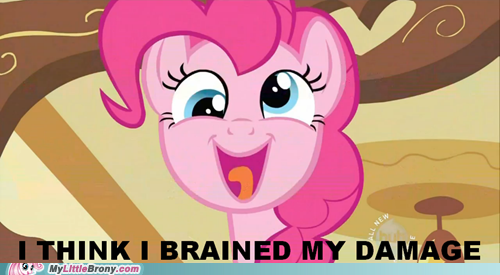Is it starvation mode???
Replies
-
Why does this type of thread show up so often - oh I see, it's a newb.
BTW, unsourced web blogs are usually not the best to back up your argument.
Although some call it "starvation mode", it's also referred to metabolic adaptation, starvation response, adaptive thermogenesis, etc. and they pretty much all mean the same thing. No it doesn't happen over night, or even in a week. It's a gradual process that can take months. This is what you would call a "stall" especially when people get close to their goal weight.
Are you saying people go into starvation mode when they get close to their goal weight?0 -
Thank you - great post!!!
I get both ticked off and amused by the "your not eating enough" crowd. I admit when I first started on here I read these comments and started eating more for two weeks - guess what happened?? I stopped losing weight. Then I did my own reading on the subject and realized that for all but the snowflakes it did not apply to me in any way. I went back to eating the way I was and the pounds just kept coming off. No damage no nails falling out plenty of energy. Thanks for the post love that article it was the one that turned me around for good.
I find it incredibly frustrating to read their comments. Who knows how many people read that nonsense, decide to eat more calories and sabotage their weight loss? I wish I were a special snowflake, but alas I am not.
Going back to eating properly and then going back to a deficit is a great way to combat starvation mode
And recommended by most who understand the symptoms. Well done
Oh boy, here we go again with you. :yawn:0 -
Why does this type of thread show up so often - oh I see, it's a newb.
BTW, unsourced web blogs are usually not the best to back up your argument.
Although some call it "starvation mode", it's also referred to metabolic adaptation, starvation response, adaptive thermogenesis, etc. and they pretty much all mean the same thing. No it doesn't happen over night, or even in a week. It's a gradual process that can take months. This is what you would call a "stall" especially when people get close to their goal weight.
You judging the OP by their start date would be like judging you for losing only 10lbs in four years.
:laugh: BOOOO-YAH!! lol....I'm sorry was that my outside voice?! Sorry that was pretty good!! They obviously didn't fully (if at all) read the link the OP provided.0 -
In for the awesomeness :happy: Owh and off course for the excitement coming!!! Great article OP0
-
Actually I thought it was 450 calories a day, but I didn't remember it correctly here is the quote
"absolute TDEE was significantly reduced in
CR (−454±76 kcal/d) and
LCD (−633±66 kcal/d) but not in
CR+EX or
controls"
CR - Calorie Restricted
LCD - Low Calorie Restricted
CR +Ex - Calorie Restricted with Exercise
So there you go, it is hundreds of calories a day and in the Low Calorie Diet up to 700 calories a day
That's great, but what is your source?
And even if those numbers are accurate how are they differentiating the adaptive thermogenesis from the normal decrease in metabolism that occurs with weight loss? Lets say you start out weighing 200 pounds and then lose a good amount of weight -- 50 pounds. That weight loss in itself will cause you to burn less calories because it takes fewer calories to fuel a smaller person.
I have quoted all my sources and provided a link to another source that has an additional 10 sources
All peer reviewed studies
And yes they have all taken into account the expected drop in TDEE based on mass that is what the studies are about the variations in the drop that are not attributed to mass you can see in the figures nobody has a higher than expected TDEE all except the control group and those who ate at a small deficit and did exercise experienced stravation mode and those who ate a greater deficit experienced more of it.0 -
Why does this type of thread show up so often - oh I see, it's a newb.
BTW, unsourced web blogs are usually not the best to back up your argument.
Although some call it "starvation mode", it's also referred to metabolic adaptation, starvation response, adaptive thermogenesis, etc. and they pretty much all mean the same thing. No it doesn't happen over night, or even in a week. It's a gradual process that can take months. This is what you would call a "stall" especially when people get close to their goal weight.
Are you saying people go into starvation mode when they get close to their goal weight?
Yes the longer you diet and the greater your deficit is the more you may experience starvation mode
Again 21 peer reviewed studies listed directly and indirectly in my blog entry and a painted example for those who don't get how it can work in a subsequent entry
The original article posted by the OP uses some articles but misinterprets them and also claims a tiny effect which is not what most recent studies have found.0 -
Read the article...can't wait to come back and read the comments. I'll save this juiciness for later when I have more time...teehee
Great article btw!0 -
Great article! Thanks for sharing.0
-
Thanks for posting! (:0
-
That is a great article. There is only one reason I don't lose or gain weight. calories in vs calories out. I had a long hard conversation with myself asking why am I hungry all the time; I feel like I am starving. I came up with that "hungry/starvation" feeling is not about hungry at all.
I am 6'4'' and I found out I could live on 800-1000 calories a day and thrive on 1200-1500 calories a day being moderately active. I was confused; why am I eating 3,000 to 4,000 calories a day and still feeling hungry? How can I feel hungry and still gain weight. The "feeling" I was associating with hunger was not hunger at all. It was addiction.
I was addicted to eating (still am) just like an alcoholic or drug addict. Losing weight is more of a mental battle and being brutally honest. Ask yourself., why am I eating: bored, lonely, unfulfilled, etc. If there is a void in your life there is not enough food in the world to fill it.
So, Starvation Mode - MYTH! Recognizing food has a proper role in your life - PRICELESS!1 -
Very nice article, nice site. Will have to return to it in a few weeks when I hit my 100 lb target and need to make significant adjustments for how I go into 2014 as i want to get closer to a -20% model rather than a strict -1000 calorie model I have been on for 11 months. The thought of if it ain't broke don't fix it, doesn't apply when I clearly broke some things (lower muscle mass than I would have wanted), so now is the time to refocus and start body composition and that site seems to have a lot of information that i can add to my list to refine and find a good targeted approach.
I do find great amusement in reading some of these posts and how people get all defensive that they are in a deficit but gaining. NO. I won't discount some people having real metabolic issues that need treatment, but most of us, if we aren't losing we aren't in a deficit.1 -
Why does this type of thread show up so often - oh I see, it's a newb.
BTW, unsourced web blogs are usually not the best to back up your argument.
Although some call it "starvation mode", it's also referred to metabolic adaptation, starvation response, adaptive thermogenesis, etc. and they pretty much all mean the same thing. No it doesn't happen over night, or even in a week. It's a gradual process that can take months. This is what you would call a "stall" especially when people get close to their goal weight.
Are you saying people go into starvation mode when they get close to their goal weight?
Yes the longer you diet and the greater your deficit is the more you may experience starvation mode
Again 21 peer reviewed studies listed directly and indirectly in my blog entry and a painted example for those who don't get how it can work in a subsequent entry
The original article posted by the OP uses some articles but misinterprets them and also claims a tiny effect which is not what most recent studies have found.
The article is NOT, I repeat NOT, disputing the fact that your metabolism will decrease as a result of a long term deficit. The longer or greater the deficit the more impact it will have on your metabolism. That was stated many times. What the article is saying is that you CANNOT hold on to weight or GAIN weight while in a caloric deficit. That is what you should have taken away from reading it... hopefully I cleared it up for you.:bigsmile:
ETA: I finally had some time to take a look at your blog post and I must say that I am quite flattered that you took the time to write that today after I started this thread. Here's the thing... what you said in your post has a lot of similar points as the article. I think maybe you are a bit defensive about the subject and immediately went into "I disagree" mode, before giving it some thought. Either way, we can agree to disagree -- even though we agree more than you think 1
1 -
Thanks for posting the link to that article. It was very informative and explained alot.0
-
Why does this type of thread show up so often - oh I see, it's a newb.
BTW, unsourced web blogs are usually not the best to back up your argument.
Although some call it "starvation mode", it's also referred to metabolic adaptation, starvation response, adaptive thermogenesis, etc. and they pretty much all mean the same thing. No it doesn't happen over night, or even in a week. It's a gradual process that can take months. This is what you would call a "stall" especially when people get close to their goal weight.
Are you saying people go into starvation mode when they get close to their goal weight?
Yes the longer you diet and the greater your deficit is the more you may experience starvation mode
Again 21 peer reviewed studies listed directly and indirectly in my blog entry and a painted example for those who don't get how it can work in a subsequent entry
The original article posted by the OP uses some articles but misinterprets them and also claims a tiny effect which is not what most recent studies have found.
The article is NOT, I repeat NOT, disputing the fact that your metabolism will decrease as a result of a long term deficit. The longer or greater the deficit the more impact it will have on your metabolism. That was stated many times. What the article is saying is that you CANNOT hold on to weight or GAIN weight while in a caloric deficit. That is what you should have taken away from reading it... hopefully I cleared it up for you.:bigsmile:
ETA: I finally had some time to take a look at your blog post and I must say that I am quite flattered that you took the time to write that today after I started this thread. Here's the thing... what you said in your post has a lot of similar points as the article. I think maybe you are a bit defensive about the subject and immediately went into "I disagree" mode, before giving it some thought. Either way, we can agree to disagree -- even though we agree more than you think
I wrote my blog entries before I read your thread. It was in response to a thread where someone was asking why they were not losing weight eating below 1200 calories thread is now locked.
And like I said in that thread and my blog entries I don't disagree that some people over-estimate and I _also_said that the majority of the time eat more to lose and you are over-estimating posts are saying the same thing
Which isn't about me or you its about the facts and the fact is that starvation mode is real it's not about us having similar ideas. Inciting those who don't read any supporting information what I'm concerned about.
ETA: VVVV exhibit A VVVV0 -
 0
0 -
Why does this type of thread show up so often - oh I see, it's a newb.
BTW, unsourced web blogs are usually not the best to back up your argument.
Although some call it "starvation mode", it's also referred to metabolic adaptation, starvation response, adaptive thermogenesis, etc. and they pretty much all mean the same thing. No it doesn't happen over night, or even in a week. It's a gradual process that can take months. This is what you would call a "stall" especially when people get close to their goal weight.
Are you saying people go into starvation mode when they get close to their goal weight?
Yes the longer you diet and the greater your deficit is the more you may experience starvation mode
Again 21 peer reviewed studies listed directly and indirectly in my blog entry and a painted example for those who don't get how it can work in a subsequent entry
The original article posted by the OP uses some articles but misinterprets them and also claims a tiny effect which is not what most recent studies have found.
The article is NOT, I repeat NOT, disputing the fact that your metabolism will decrease as a result of a long term deficit. The longer or greater the deficit the more impact it will have on your metabolism. That was stated many times. What the article is saying is that you CANNOT hold on to weight or GAIN weight while in a caloric deficit. That is what you should have taken away from reading it... hopefully I cleared it up for you.:bigsmile:
ETA: I finally had some time to take a look at your blog post and I must say that I am quite flattered that you took the time to write that today after I started this thread. Here's the thing... what you said in your post has a lot of similar points as the article. I think maybe you are a bit defensive about the subject and immediately went into "I disagree" mode, before giving it some thought. Either way, we can agree to disagree -- even though we agree more than you think
I wrote my blog entries before I read your thread. It was in response to a thread where someone was asking why they were not losing weight eating below 1200 calories
And like I said in that thread and my blog entries I don't disagree that some people over-estimate and I _also_said that the majority of the time eat more to lose and you are over-estimating posts are saying the same thing
Which isn't about me or you its about the facts and the fact is that starvation mode is real it's not about us having similar ideas.
This is the last time I am going to repeat myself...
Starvation response (i.e. adaptive thermogenesis) is REAL.
Starvation mode, AS MOST DEFINE IT, is a myth.
And I agree, this definitely isn't about you or me... it's about all the misinformation out there that is a detriment to those trying to lose weight.
Oh jeez I just realized I haven't eaten since noon, I better go before my metabolism shuts down and I go into starvation mode. :laugh:1 -
No. The answer is no. Starvation mode, as most define it, is a myth. Please read this article:
http://www.aworkoutroutine.com/starvation-mode/
Thank you so very much for the link. Very informative!0 -
Actually I thought it was 450 calories a day, but I didn't remember it correctly here is the quote
"absolute TDEE was significantly reduced in
CR (−454±76 kcal/d) and
LCD (−633±66 kcal/d) but not in
CR+EX or
controls"
CR - Calorie Restricted
LCD - Low Calorie Restricted
CR +Ex - Calorie Restricted with Exercise
So there you go, it is hundreds of calories a day and in the Low Calorie Diet up to 700 calories a day
In which study (of the 21 you quoted) was this and what was the starting TDEE for this?
Also the last person you so valiantly defended with this actually admitted to not weighing her food and not using a HRM for her exercise calories.
Why does it only affect some people and not others? i.e. the girl who posted a few weeks (a couple of months maybe) ago that was like 73lbs or something and in medical care for her anorexia clearly didn't get this until she was down to her last few body fat % (which I believe was the results of the Minnesota experiment as well)1 -
 0
0 -
Excellent article. This ties in nicely with an earlier thread where the person decided to actually weigh all of her food for a day instead of using cups/spoons/packaging info and found that the actual weight/calorie content of her food was many more calories than she had been logging. If you aren't losing weight, you are incorrectly logging food and exercise. Such a simple concept.1
-
Excellent article. This ties in nicely with an earlier thread where the person decided to actually weigh all of her food for a day instead of using cups/spoons/packaging info and found that the actual weight/calorie content of her food was many more calories than she had been logging. If you aren't losing weight, you are incorrectly logging food and exercise. Such a simple concept.
It is quite simple isn't it? :happy:
Shame I didn't see that thread. It would have made me very happy in the end.0 -
If you aren't losing weight, you are incorrectly logging food and exercise. Such a simple concept.
But, but... STARVATION MODE!!0 -
Very nice article, nice site. Will have to return to it in a few weeks when I hit my 100 lb target and need to make significant adjustments for how I go into 2014 as i want to get closer to a -20% model rather than a strict -1000 calorie model I have been on for 11 months. The thought of if it ain't broke don't fix it, doesn't apply when I clearly broke some things (lower muscle mass than I would have wanted), so now is the time to refocus and start body composition and that site seems to have a lot of information that i can add to my list to refine and find a good targeted approach.
I do find great amusement in reading some of these posts and how people get all defensive that they are in a deficit but gaining. NO. I won't discount some people having real metabolic issues that need treatment, but most of us, if we aren't losing we aren't in a deficit.
Congratulations on your weight loss! I really like his site overall! He has a lot of great ideas and his writing style is entertaining.0 -
If you aren't losing weight, you are incorrectly logging food and exercise. Such a simple concept.
But, but... STARVATION MODE!!
You'll never learn, will you?! :laugh: 0
:laugh: 0 -
Now that I've had time to read everything...it really is that simple. Calories in must be less than calories out. According to all the "proven" crap I've read as to why we don't lost the weight, this is what I gather...
-if you eat too much, you gain weight
-if you eat too little, you gain weight
-if you exercise too much, you gain weight
-if you exercise too little, you gain weight
-if you eat dairy, you gain weight
-if you don't eat dairy, you gain weight
-if you don't do the f*cking hokey pokey at the exact moment Venus aligns with Kasterborous, you gain weight
I'm sticking with calories in < calories out1 -
-if you don't do the f*cking hokey pokey at the exact moment Venus aligns with Kasterborous, you gain weight
lmao :laugh:0 -

so if starvation mode thing is true why are anorexics so darn thin? by that logice they should not lose weight as much or as fast as they tend to
also why dont they eat bacon?1 -
Bump for later after I do my evening hokey-pokey.0
-
great article!! Sharing with friends
 0
0 -
What a great article! This is something my group needs to know about.0
This discussion has been closed.
Categories
- All Categories
- 1.4M Health, Wellness and Goals
- 398.1K Introduce Yourself
- 44.7K Getting Started
- 261K Health and Weight Loss
- 176.4K Food and Nutrition
- 47.7K Recipes
- 233K Fitness and Exercise
- 462 Sleep, Mindfulness and Overall Wellness
- 6.5K Goal: Maintaining Weight
- 8.7K Goal: Gaining Weight and Body Building
- 153.5K Motivation and Support
- 8.4K Challenges
- 1.4K Debate Club
- 96.5K Chit-Chat
- 2.6K Fun and Games
- 4.8K MyFitnessPal Information
- 18 News and Announcements
- 21 MyFitnessPal Academy
- 1.5K Feature Suggestions and Ideas
- 3.2K MyFitnessPal Tech Support Questions


















